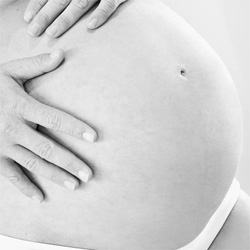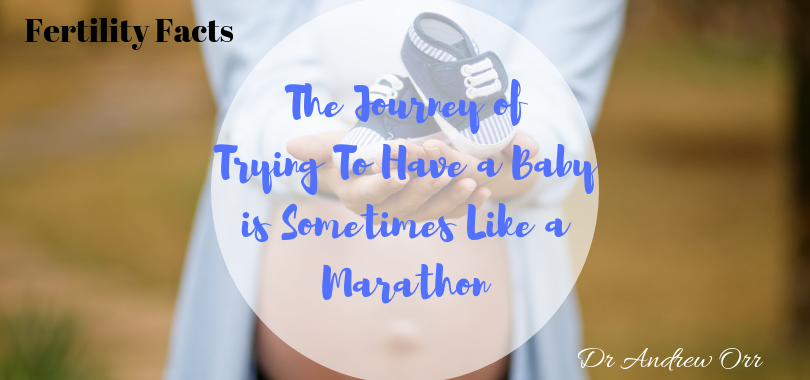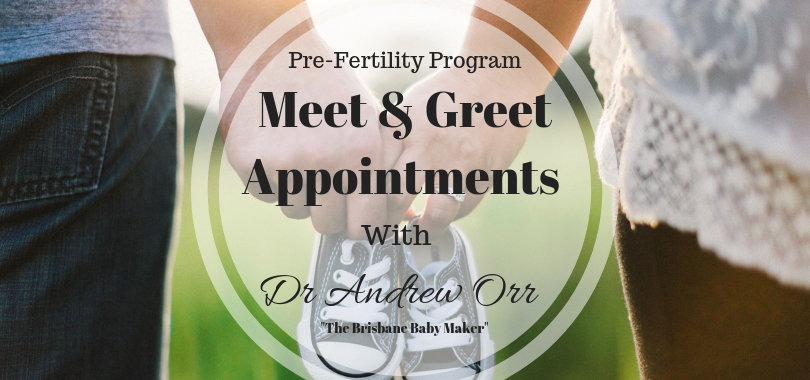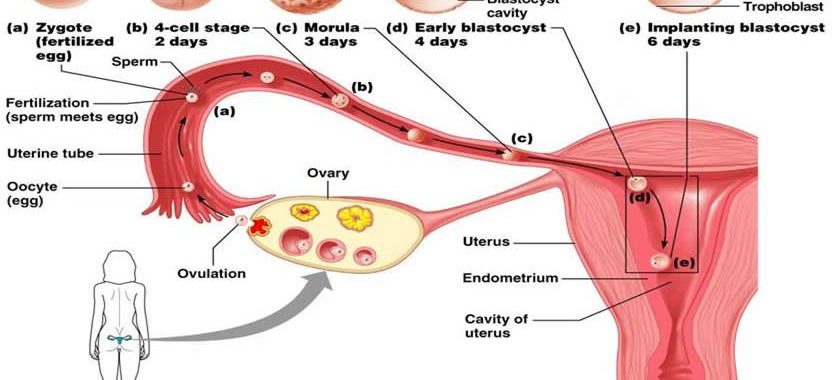Understanding how genetics plays a major part in fertility and reproduction is very important. Many couples are completely unaware that their fertility issues and inability to conceive may in fact be from genetic, or hereditary issues that have not been screened for.
When it comes to fertility and being able to conceive more and more couples are now struggling. Some of this is due to increased stress levels, poor diet and lifestyle, increase alcohol consumption, lack of preconception care and many other factors. However, one key area that is not often talked about, or even known to many is genetic factors, chromosomal factors and DNA issues passed on through our sperm and eggs.
Fertility and reproduction is one of the hardest areas of medicine to understand. I am sure many people think that they understand it, but even with years of study and clinical experience, some questions just cannot be answered at this present time. No amount of “Dr Google” searching is going to bring answers for many couples and this is something that needs to be discussed more. Unless you have done years of study and clinical research into fertility and reproduction, you cannot understand the finer details and intricacies of conception. Even then, some answers are just not available to anyone at this present time.
The Reality of Fertility and Reproduction
The reality of fertility and reproduction is that just because an egg and sperm are put together, it does not mean that an embryo will be formed. Even if an embryo is formed, it does not mean that it will become a baby. Even if an embryo meets scientific grading categories (grade 1-4 etc), it still does not mean that the inner make up of that embryo is chromosomally viable. Even if the embryo is tested to be chromosomally viable (via PGD/PGS testing), it still does not mean that the embryo will go on to become a baby. This is the hardest thing for people to get their heads around and why we need to discuss this more. Quite simply, something that is supposed to seem easy really isn’t that easy at all. Reproduction and having babies is not as easy as many have led us to believe.
Chromosomal Errors
One of the biggest factors in embryos not developing, or IVF cycles failing, or even natural conception not working is chromosomal errors at the embryo stage. Even if both parents have normal karyoptype (46XX and 46XY) it does not mean that they cannot produce random chromosomal and genetic errors in their sperm and eggs. The thing is, the older we get, the more these errors occur and the harder it is to fall pregnant. An abnormal embryo with and abnormal number is cells is called aneuploidy. When an embryo has the correct number of cells it is called euploidy. Unfortunately, many couples are producing high numbers of aneuploidy embryos and this is why they are struggling to conceive. As mentioned before, just because the outer features of the embryo look fine, it does not mean the inner workings (chromosomes and DNA) are fine.
The Important of Genetic Screening
Speaking about chromosomal and genetics, when couples are struggling with fertility and being able to conceive, one of the biggest factors I see is that couples are not being screened properly. This is screening on all aspects, not just the standard blood tests and fertility investigations. Many couples that come to see me for help for fertility often believe that they have had everything done, yet most times I am finding that they have only had the basics done. Many couples have not even had basic genetic screening for karyoptype and genetic issues such as cystic fibrosis.
Understanding the Coding on DNA
Understanding the coding on the DNA is now having a profound practical impact on the practice of medicine today. This is particularly important in the area of infertility. There is increasing knowledge that there is frequently a major genetic component both from nuclear and mitochondrial DNA in couples with infertility or subfertility.
Significant examples include:
- The demonstration of microdeletions on the Y chromosome in men with low sperm count (oligozoospermia)
- The identifications of mutations in the Cystic Fibriosis gene in those with congenital bilateral absence of the vas deferens
- The high rate of aneuploidy in normally dividing embryos after fertilisation in older infertile couples
- The presence of an expanded triplet repeat in the androgen receptor in some men with low sperm counts.
Without seeing someone who has all this knowledge of the molecular and genetic basis of fertility many couples will continually have troubles trying to fall pregnant and may possible end up with repeated failed cycles in IVF too. There is so much to genetics and it is often overlooked in all areas of fertility these days. No amount of “Dr Google” is going to give you this information, nor will it give you understanding, unless you have a degree in reproductive medicine, or genetics. I do understand that people get desperate for answers, but unfortunately, sometimes these answers cannot be found by an internet search.
Other Genetic Factors Affecting Fertility
There are also other genetic conditions and chromosomal errors such as balanced translocations, reciprocal translocations, Robertsonian translocations, Turner’s syndrome, Kleinfelter’s syndrome, fragile X syndrome and many more. Again, many who are struggling with fertility issues and struggling to have a baby may not have even had some of these genetic screening done.
When I see couples, I also recommend advanced genetic carrier screening which tests for several hundred more genetically inherited mutations. Many fertility clinics do not recommend couples to do advanced carrier screening. Given that 1 in 22 couples are at risk of a hereditary gene mutation, it is really important to screen couples properly and not just do the basics.
Mutations in Genes
A mutation is a change in the information encoded in the DNA sequence. Such a change may result in the production of an abnormal protein, produce a truncated protein, reduce the levels of that protein, or cause it not to be made at all.
A single gene genetic disorder is one where an alteration in the DNA sequence of only one of the genomes 40,000 genes has resulted in significant pathology and disorders that affect the human body.
Such disorders include cystic fibrosis, Duchenne muscular dystrophy, Huntington disease and familial breast cancer. Although individually these disorders are rare, as a group, they are numerous and therefore important.
Cystic fibrosis, one of the most common autosomal recessive conditions affecting people of Northern European decent has a population incidence of 1 in 2,500.
To date up to 6,000 single gene disorders have been characterized and it is estimated that 14 per 1,000 people suffer from one of these conditions. A person who inherits a mutation in a single gene will carry that mutation in every cell of their body.
Mutations occur when a cell is dividing. The task of correctly copying 6 billion “bits” of information, the number of base pairs in the human genome, is huge and mistakes do occur. It has been established experimentally that these mistakes occur and are uncorrected in one in one billion base-pairs copied (or about 6 errors per cell division).
When a mutation occurs in the coding DNA sequence of a gene it may be a polymorphism with no effect or it may significantly impair the gene function. All mutations are thereafter inherited. Inherited or germ line mutations must be present in the egg or sperm. They are twice as common in sperm as eggs.
Male Sperm Quality is a Big Part of Fertility Issues
Before everyone jumps to the conclusion that all failed cycles are related to women’s egg quality, I need to make it absolutely clear that men are half of the fertility equation. They are not exempt when conception does not take place, or an IVF cycle fails. As mentioned above many genetic mutations are twice more likely to be present in sperm than eggs. Up to 85% of miscarriage and chromosomally defective embryos are related to chromosomal errors that men have passed through their sperm.
Women’s eggs do have more errors as they get older, and eggs are not as viable as they get older, but men’s sperm are exactly the same. If men are not having their sperm quality managed while trying to fall pregnant, there is half your problem then and there. This is why all men are treated and managed on all levels of their health when doing my fertility program.
Sperm quality is variable and each time a man ejaculates the quality of that sperm can vary by as much as 20% at a given time. This is why men need to be continually looking after their health and sperm health while trying to conceive. Men are actually the bigger part of conception not taking place and we need to talk about this more. Men are not exempt when it comes to making babies.
Creating Life
Life does not begin with conception, but is simply a continuum from living cell to living cell with genetic information being transmitted through the genome from one generation to the next. A failure to achieve this is recognised as infertility.
At conception we are a single fertilized cell resulting from the fertilization of the egg by the sperm. The sperm contributes one copy of nuclear DNA, the egg the other copy and the mitochondrial DNA. That cell proceeds to divide, and over the course of 9 months (32 cell divisions) billions of cells are created, with specialized functions, forming complex tissues and organs that constitute the working human body. That first cell therefore must contain all the information necessary for embryological development, growth from fetus and then growth through to adult life. Without all the right coding and necessary information, life does not get created. This is also the answer to why so many couples are having problems trying to conceive.
The Importance of Seeing a Reproductive Medicine Expert
There are many factors to fertility and reproduction and why it is important that couples see someone who is a fertility expert. The fertility profession is largely unregulated and many who are now practicing in that profession are not experts at all. Many actually do not have further training and qualifications in reproductive medicine and are some of the reason why people are struggling to fall pregnant.
Final Word
Lastly, while we cannot change our chromosomes, or change genetic mutations, we can do things to change and improve our cellular DNA. This is why proper preconception care and preconception programs are so important. Everything we do, we ingest, we think etc, can be passed on to our future offspring via sperm and eggs. Health parents produce healthy sperm and eggs, thus producing healthy babies.
If you need help with being able to conceive, give my friendly staff a call and find out how my fertility program may be able to assist you. I use a ‘No Stone Left Unturned’ approach to assisting couples with fertility issues and will look at every aspect of a couples lives, including genetic and hereditary issues, to help them have the best chance of having a baby.
Regards
Andrew Orr
-No Stone Left Unturned
-Master of Reproductive Medicine
-The International Fertility Experts










